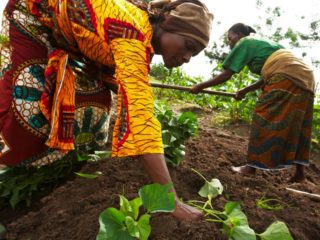Agric minister inaugurates Agricultural Transformation Agenda Support Programme
The minister also kicked off the
National Agribusiness Youth Training on seed production and processing
technology.
 |
| Chief Audu Ogbeh, Minister of Agriculture and Rural Development |
The centre aims to promote the
creation of additional incomes to an increased number of producers and
entrepreneurs in the agricultural sector in Nigeria by providing about 120,000
jobs along the value chain of priority commodities. An additional 20 million
tonnes of key commodity food crops including cassava, rice, and sorghum will be
added to the domestic food supply each year. The first phase of the project
will provide training to 200 youth farmers.
A significant outcome of the
project will be the development of outreach models with young entrepreneurs in
agriculture – “IITA Youth Agripreneurs”. This component will be implemented by
IITA which has established a Youth Agripreneur scheme at its headquarters in
Ibadan, Oyo State, and also in Democratic Republic of Congo, Kenya, Tanzania
and Zambia.
The Agripreneurs serve as
ambassadors of agriculture among other young people in their regions through
peer education, training and demonstration of agricultural best practices, and
business skills in value chain development.
A goodwill message delivered on
behalf of the AfDB Nigeria Senior Director, Ebrima Faal, reiterated the Bank’s
support to agriculture in Nigeria, in line with the Government’s Agriculture
Promotion Policy (APP: 2016 – 2020) which is building on the successes of the
Agricultural Transformation Agenda (ATA). He added that the support was aligned
to the Bank Group’s “High 5” priorities especially the “Feed Africa” Strategy
for Agricultural Transformation in Africa (2016 – 2025).
Ogbeh urged youth agripreneurs to
remain steadfast in their mission to promote agriculture. He also highlighted
the priority crops for the current administration, which in addition to staple
crops, will also focus on export oriented value chains (such as cashew, cocoa,
etc.) in view of the need to diversify the economy, given the current low oil
prices.



Comments
Post a Comment